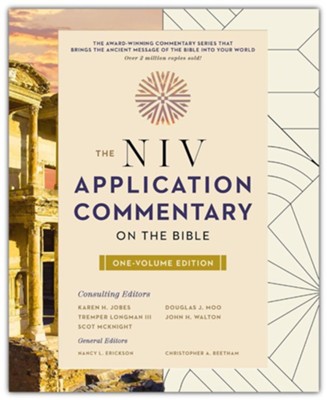
When is Righteous Anger Justified?
My dear brothers and sisters, take note of this: Everyone should be quick to listen, slow to speak and slow to become angry, because human anger does not produce the righteousness that God desires. Therefore, get rid of all moral filth and the evil that is so prevalent and humbly accept the word planted in you, which can save you.
Do not merely listen to the word, and so deceive yourselves. Do what it says. Anyone who listens to the word but does not do what it says is like someone who looks at his face in a mirror and, after looking at himself, goes away and immediately forgets what he looks like. But whoever looks intently into the perfect law that gives freedom, and continues in it—not forgetting what they have heard, but doing it—they will be blessed in what they do.
Those who consider themselves religious and yet do not keep a tight rein on their tongues deceive themselves, and their religion is worthless. Religion that God our Father accepts as pure and faultless is this: to look after orphans and widows in their distress and to keep oneself from being polluted by the world (James 1:19-27).
Original Meaning
Receive the Word in Humility, Speak without Anger (James 1:19–21)
The opening verb, “take note of this” (Gk. iste, v. 19), can by form be either indicative (a simple statement) or an imperative (a command). It is most likely a command, and it introduces the thoughts that follow: “Everyone should be quick to listen, slow to speak and slow to become angry.”
James then turns his attention to two examples that illustrate his point: human anger and the righteous life that God desires. In verse 20 James seems to confirm our suspicion that in the background is to be found a concern with the character of Christian community, for he says that human anger does not produce the righteousness of God. James seems to have no particular type of anger in view, but puts before us the proposition that anger is deleterious to the righteousness God desires of us.
In verse 21 James opens with a brief catena of behaviors that should not characterize the life of a Christian. The first involves both restraint and renunciation: Christians should “get rid of” (NIV) or “strip off” certain behaviors (v. 21a). James instructs us to remove “moral filth” and “evil.” These terms are among the strongest he has at his command and imply not only general moral evil, but also a premeditated, evil intent.
But turning from evil is not enough. James also places before us an alternative path: “Humbly accept the word planted in you, which can save you” (v. 21b). Humility is significant not only because the attitude is necessary in order to allow the word to flourish, but also because it is the essential attribute of the poor, those without resources who are dear to the heart of God.
God’s word has the power to save us. We are to nurture it, for it is a motive force in the process of saving us. The result of this process is that we will achieve ultimate salvation.
Hearing without Doing Is Worthless (James 1:22–25)
Living a life of holiness requires a life of action. James makes this point with the present imperative “do” (ginesthe, v. 22), which has the force of “continue to do.” God’s people must continue to grow in carrying out the commands laid on them by their hearing of God’s word. This hearing is most naturally the public reading of the Scriptures in the context of worship. But hearing alone is insufficient. To hear and not to take action is to lie to oneself, to “deceive” ourselves. Having introduced the idea of eschatological judgment (v. 21b, the word is able to “save” us in ultimate salvation at the day of judgment), James’s warning here takes on grave consequences.
In verses 23–24 James’s point is that the image in the mirror, whether the product of a furtive glance or an adoring gaze, quickly dissipates; whatever impression forms in the mind and heart while looking in a mirror is temporary.
Verse 25 offers a positive example, but this verse is perhaps the thorniest theological problem in the entire book. For James “perfect law” and “word” are related. Like Jesus, James does not have in mind a new law, but rather the fuller expression or more perfect distillation of the Mosaic law. For the Christian this law is still the will of God, but a more refined apprehension of that will. The perfect law, the word implanted and allowed to take root, is ultimately the very teaching of Jesus.
Pure Religion (James 1:26–27)
Two links connect this section to what has gone before. First, verse 26 highlights the sin of rash speech, the theme that opened the passage (v. 19). Second, here is provided an extension of the teaching of “not merely hearing but doing,” in that worship is described as worthless without actions impelled by a godly character. In both this and the previous section, self-deception plays a significant role. The practice of “pure religion” is described here as the control of speech, acts of charity, and resisting temptation.
Application
Intemperate speech. While as children we may have chanted, “Sticks and stones may break my bones, but words will never hurt me,” the ditty is actually an exercise in whistling in the dark. Words have great power to both wound and heal. Our speech has the power to encourage and nourish life or to snuff it out. Which shall we choose?
When is righteous anger justified? James cautions a slow and deliberate approach. Perhaps the best answer is to investigate biblical patterns, especially that of the prophets. The prophets certainly expressed righteous anger, as did our Lord Jesus. Yet James advocates slowness of speech. We easily become numb to injustice. Oppression of the powerless needs to be pointed out, and in whatever terms necessary. But not every situation is such a crisis. James would have us choose words that are, in fact, appropriate to the issue.
Drawn from The NIV Application Commentary on the Bible: One-Volume Edition.

The NIV Application Commentary on the Bible
The NIV Application Commentary on the Bible is a masterful blend of content written by today’s top academics in a way that is compelling and easy to understand for anyone. Its unique format provides a bridge from the world of the Bible to our lives today, guiding the reader to powerfully apply the biblical message to contemporary situations, problems, and questions.s
Learn More






Digging deep in in the word
So given what we are witnessing in the culture and government here in the USA. The blatant deception, the steering of humans like animals in a direction for and agenda outcome chosen by only a few with wealth and power. Are We as Believer’s to sit idly by and watch the purposeful destruction of what is seemingly good , thus voiding another commandment for a Father to leave an inheritance to his children and their children, by a decent place to grow and flourish in? Instead does Our Father just want us to lay it all down and allow evil to take over? Does this null and void the very beginning where we were asked to subdue and take dominion?
Very good question . I’m also struggling with this issue. Unfortunately, I don’ have an answer.
Very nice message
I enjoyed the part I was reading. Is there is anything I can get to help with present days troubles and situations?
I encourage you to sign-up to receive articles like this each week: https://www.thenivbible.com/niv-blog-signup-form/
Thank you for bringing me God word. I am someone with a stone heart. I will ask almighty God to give me a soft heart.
heart. I will ask almighty God to give me a soft heart.
This article was concise and well written. This subject matter is certainly timely and I pray I can be effective in applying the advice to my own behavior.
It’s great to learn about God s words.
Wow, this is good advice.
Very happy for the Biblical exposition of the word of God but very scanty life application.
This is good stuff that has application to who we are and not who we say or think we are..
Blessed by the wonderful word exposition.
The verse is speaking to me… Jesus is LORD. I was sooo angry with my friend but this morning when I woke up I prayed to God to forget what she said and to be calm and to enjoy my day as I do not know what tomorrow will bring for me.
Very expository and educative. I am grateful for this teaching.
This commentary has helped me address my faults, especially the parts highlighting “quick to listen, slow to speak and slow to become angry”. I am thankful and know that I must practice these statutes and further not merely listen to the word alone, but actually put it into active practice. In due time, I will be seeking to buy the NIV Application Commentary to benefit from more in-depth Scripture learning. God bless the entire NIV team.
I love this teaching.
I am going through a crisis in my family and am terribly depressed but I’m hanging on to the Lord to do his work in the situation.
Wonderful words for our soul. Thank you for explaining the word of God for our better understanding.
Thanks for sharing this message. It’s a very good message.
Justice, Judgement, and Wrath are the exclusive domain of God. The wrath of the prophets and of Christ against sin was God-inspired. The only appropriate anger in our hearts should be directed toward our own fleshly desires (“cutting off, tearing out”) and removing our own “log” before judging others.
Thank you for the comments. This is evangelism. Yes, we can be hearers and doers of the word of God if we sincerely make up our minds to do so. I say this because : (1) God’s grace is sufficient unto us. (2) We can do all things through Christ who strengthens us. (3) Our Lord Jesus, Immanuel is with us all the way, as our helper. God bless the effort of the NIV team in inspiring souls to cling unto God especially in times like this.